The first transatlantic flight of a commercial airliner to be fully powered by sustainable aviation fuel was conducted today by a Virgin Atlantic Boeing 787 on a journey from London Heathrow to New York JFK. The 88% HEFA fuel made from waste fats and supplied by Air bp was blended with 12% synthetic aromatic kerosene (SAK) supplied by US company Virent. Flight100 is the culmination of a one-year collaboration led by Virgin Atlantic involving ICF, Rocky Mountain Institute (RMI), Imperial College London, University of Sheffield, Boeing and Rolls-Royce, in partnership with the UK Department for Transport (DfT). As well as proving the capabilities of 100% SAF, the flight’s non-carbon emissions will be assessed to improve scientific understanding of the effects of SAF on contrails and particulates. The DfT supported the flight with £1 million of funding and has recently awarded nine projects a combined £53 million ($67m) in a second round competition to help scale up the UK SAF production industry.
On board Flight100, which required a specific permit from the UK CAA since commercial flights are certified only to fly with a maximum 50% SAF blend, was Transport Secretary Mark Harper. “Today’s historic flight shows how we can both decarbonise transport and enable passengers to keep flying when and where they want. This government has backed today’s flight to take-off and we will continue to support the UK’s emerging SAF industry as it creates jobs, grows the economy and gets us to Jet Zero.”
He was accompanied by Virgin Atlantic’s Chief Executive, Shai Weiss, and the airline’s founder, Sir Richard Branson.
Branson was involved in the first-ever biofuels flight of a commercial airliner in February 2008 when a Virgin Atlantic Boeing 747 flew from Heathrow to Amsterdam with one of its four engines partly powered by a fuel made from babassu nuts and coconuts. Nearly 10 years later, the airline made a transatlantic flight using fuel made from waste gases that was supplied by LanzaTech.
Commenting on today’s flight, Branson said: “The world will always assume something can’t be done, until you do it. The spirit of innovation is getting out there and trying to prove that we can do things better for everyone’s benefit.
“Virgin Atlantic has been challenging the status quo and pushing the aviation industry to never settle and do better since 1984. Fast forward nearly 40 years, that pioneering spirit continues to be Virgin Atlantic’s beating heart as it pushes the boundaries from carbon fibre aircraft and fleet upgrades to sustainable fuels.”
Weiss said the flight proved SAF was a safe, drop-in replacement for fossil-derived fuel and the only viable solution for decarbonising long-haul aviation. “It’s taken radical collaboration to get here and we’re proud to have reached this important milestone, but we need to push further,” he said.
The main feedstock for the HEFA (Hydroprocessed Esters and Fatty Acids) SAF supplied for the flight was tallow, a by-product of the meat rendering process and unsuitable for animal or human consumption. The SAK was made from plant sugars, with the remainder of plant proteins, oils and fibres continuing into the food chain.
Following the flight, a full end-to-end lifecycle analysis will be undertaken, accounting for the emissions reduction associated with the use of SAF and the fuel optimisation activities being deployed. Any residual emissions are being mitigated with the use of carbon removals, specifically biochar credits – a material that traps and stores carbon taken from the atmosphere.
Research on the non-CO2 emissions from the flight will help to implement contrail forecasts in the flight planning process, said Virgin Atlantic, adding the data and outcomes will be shared with industry and that the airline would continue its involvement with contrail work through RMI’s Climate Impact Task Force, which is part-funded by Virgin Unite.
Sheila Remes, VP Environmental Sustainability at Boeing, said the flight was another milestone for the two partners following on from the biofuel test flight in 2008 and was a key step in Boeing’s commitment to deliver 100% SAF-compatible flights by 2030.
Simon Burr, Group Director of Engineering, Technology & Safety, Rolls-Royce, whose Trent 1000 engines powered today’s 787 Dreamliner flight, reported the OEM had recently completed compatibility testing of 100% SAF on all its in-production civil aero engine types. “This [flight] is further proof that there are no engine technology barriers to the use of 100% SAF,” he said.
Federica Berra, SVP of Air bp, said: “Collaboration with industry partners is vital to successfully scale SAF, as is long-term policy support to foster supply and demand. Our expert team has worked for months in preparation for this flight, drawing upon their deep knowledge and skills in fuel handling, blending and logistics to ensure product quality and safety standards have been met.”
The flight has been welcomed by others in the UK aviation industry, which is relying on SAF to achieve its net zero emissions by 2050 target. “This is an exciting milestone on the journey towards aviation’s net-zero future. To ensure we achieve this shared goal, the right government policy and price support needs to be in place to see the scalability of affordable SAF to airlines; alongside the investment in and infrastructure for zero and low-emission aviation technologies like hydrogen,” said a statement by cross-sector group Sustainable Aviation.
Jonathon Counsell, Group Head of Sustainability at International Airlines Group and Chair of the UK Jet Zero Council’s SAF Delivery Group, commented: “The test flights flown prove that the aviation industry is technically ready to make the switch to SAF but what we need now is action from governments to incentivise investment and get plants into construction. And that needs to happen quickly as the UK government has committed to five plants in construction by 2025, so time is of the essence.”
The UK DfT’s Advanced Fuels Fund competition is making available around £135 million ($170m) in total for the development of SAF production plants in the UK. Winners in the first window announced last December included Alfanar Energy (Lighthouse Green Fuels project), Fulcrum BioEnergy (NorthPoint), LanzaTech UK (DRAGON) and Velocys (Altalto and e-Alto).
Winning proposals for the second window were announced this month, with funding going to nine projects. Alfanar received a second award for activity not covered by their first window award, otherwise the awards in the second round went to new projects including Abundia Biomass-to-Liquids (A-Jet UK), Arcadia e-Fuels (NABOO), Carbon Neutral Fuels (ASAP-DAC), Esso Petroleum (Solent SAF), Nova Pangaea Technologies (Project Speedbird, which is backed by British Airways), OXCCU Tech (OXEFUEL BIOGENIC), Willis Sustainable Fuels (Carbonshift PtL) and Zero Petroleum (PMZ.2).
The DfT said the fund would help deliver the upcoming UK SAF mandate that will require at least 10% of jet fuel to come from sustainable feedstocks by 2030, which it estimates would save the industry up to 2.7 million tonnes of CO2e annually.
While in the United States, Transport Secretary Harper will co-chair a SAF Investor Summit in New York.
Photo: Virgin Atlantic Boeing 787 is fuelled at Heathrow with the 100% SAF supplied by Air bp before Flight100 to New York JFK


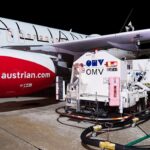
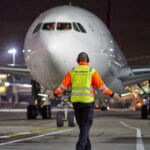
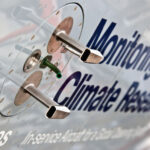


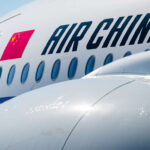
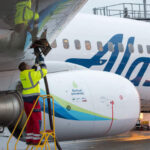
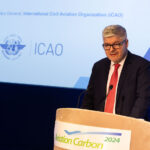

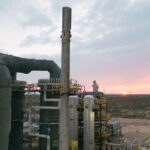
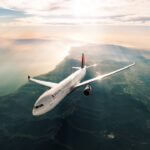
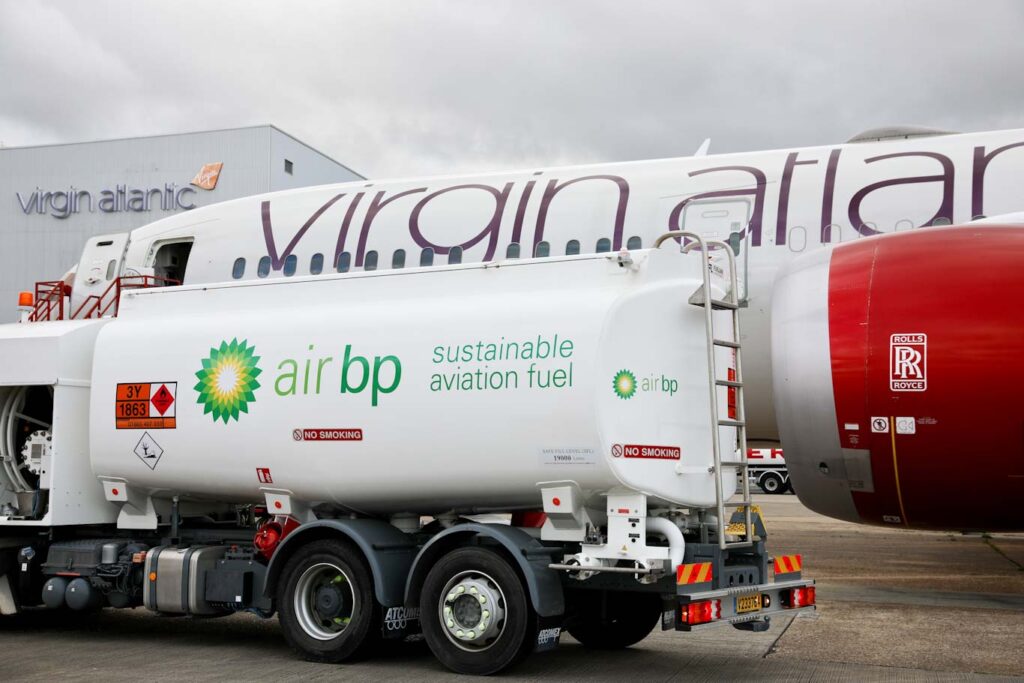


More News & Features
Progress on decarbonising the airline sector has been slow this year, says IATA chief
EASA releases status report on Europe’s SAF production and readiness to meet blending targets
UK government sets out new Jet Zero focus and launches consultation on CORSIA global emissions scheme
New study highlights differing strategies and barriers to decarbonising aviation in UK and Europe
New partnerships formed to drive e-SAF production in Nordic markets
IAG continues to go big on e-SAF as it inks 10-year offtake agreement with Infinium